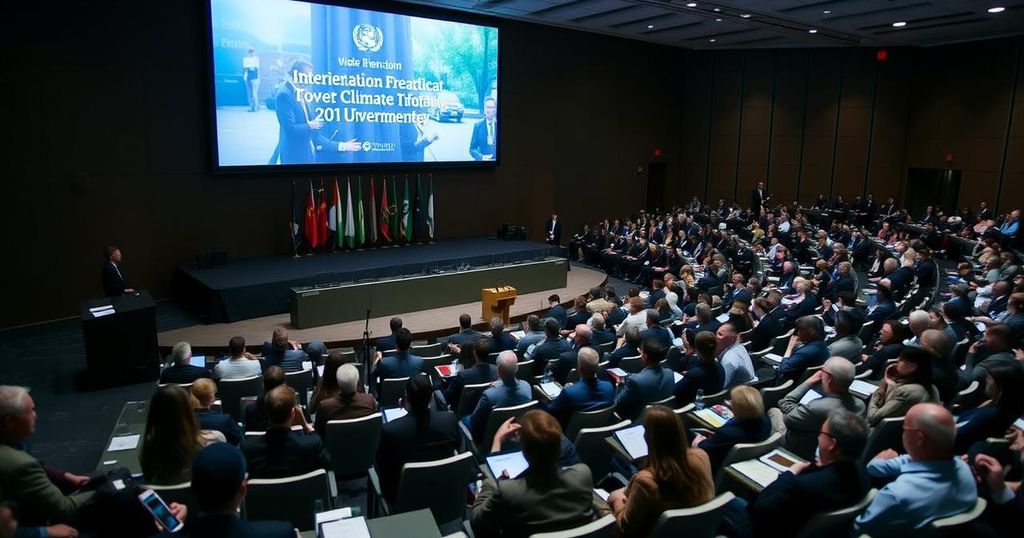COP29: The Dilemma of Hosting Climate Conferences in Authoritarian Regimes

The upcoming U.N. Climate Change Conference, COP29, in Azerbaijan raises concerns about the human rights record of the host, President Ilham Aliyev, highlighting a troubling trend of selecting oppressive regimes for these events. Current U.S. political prisoners in Azerbaijan underline the need for a reevaluation of hosting criteria that includes democratic values, asserting that the legitimization of despotic regimes undermines global efforts to combat climate change.
The selection process for hosting the annual United Nations climate conference, COP29, is troubling as it ignores critical democratic principles and human rights in favor of metrics such as infrastructure and financial capacity. Scheduled to take place in Baku, Azerbaijan, from November 11, COP29 marks the third consecutive climate conference held in a dictatorship and the second in a state heavily reliant on fossil fuels. Despite Azerbaijani President Ilham Aliyev presenting the event as a symbol of national prestige, his regime has a dire record of human rights abuses, including the imprisonment of political dissidents and the suppression of civil society. U.S. lawmakers recently urged Secretary of State Antony Blinken to advocate for the release of political prisoners in Azerbaijan. However, Aliyev dismissed these concerns as “disgusting,” demonstrating a lack of accountability. Human Rights Watch and Freedom Now have reported a significant rise in political prisoners in Azerbaijan, from 122 in December 2021 to at least 303 by June 2023, reflecting a pattern of state-sponsored repression leading up to the conference. The unjust imprisonment of political figures, such as economist Gubad Ibadoghlu and activist Anar Mammadli, epitomizes the regime’s attempts to stifle dissent. Mammadli, who aimed to organize civil society efforts surrounding COP29, has experienced prolonged pretrial detention under dubious charges aimed at silencing him. Additionally, Aliyev’s government has actively targeted media outlets and independent journalists, further curtailing free expression. While addressing climate change is crucial for global cooperation, the U.N. must reevaluate its hosting criteria to avoid legitimizing oppressive regimes. A more principled approach would involve identifying a permanent host with robust democratic values and environmental credentials.
The article critiques the criteria used by the United Nations for selecting host countries for major climate conferences, particularly highlighting the forthcoming COP29 in Azerbaijan. It reflects on the political implications of holding such events in nations characterized by oppressive regimes, thus underscoring the inconsistency between global climate initiatives and the endorsement of human rights violators. Through various examples of political repression in Azerbaijan, it argues for a reassessment of hosting criteria that incorporate democratic governance and human rights as essential components.
In conclusion, hosting the COP29 in Azerbaijan sheds light on the shortcomings of the U.N. selection process, which excludes crucial human rights considerations. Such a practice risks emboldening repressive regimes like that of President Aliyev while undermining the credibility of global climate efforts. A proposed solution is to establish a permanent host country with proven democratic and environmental commitments, fostering an atmosphere of accountability and progress.
Original Source: www.washingtonpost.com






